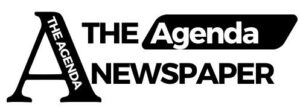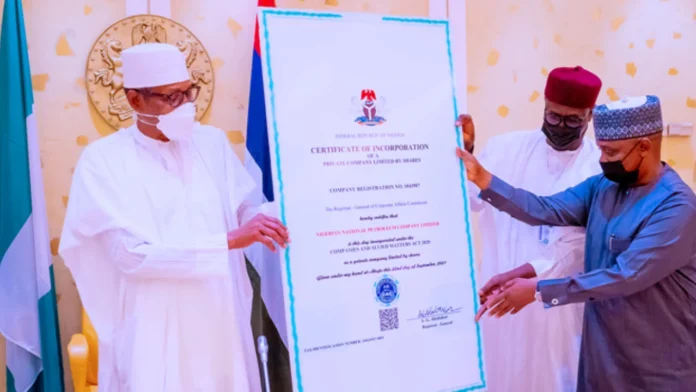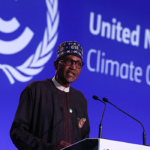President Muhammadu Buhari has officially unveiled the Nigerian National Petroleum Company Limited (NNPC Ltd) with a charge that it must ensure that the company’s over 200 million shareholders and Nigerians at large get value in line with global best practices.
He noted that the Petroleum Industry Act 2021 has given an additional impetus for a transparent and profitable energy venture.
The president assured that the NNPC Limited will operate as a commercial, independent and viable NOC at par with its peers around the world, to sustainably deliver value to its over 200 million shareholders and the global energy community, while adhering to its fundamental corporate values of integrity, excellence and sustainability.
With the NNPC transitioned to a fully commercial entity, the federal government will henceforth halt all forms of funding for projects and sundry purposes as against what was obtained in the last 45 years of the national oil company’s existence.
According to the president, Nigeria places a high premium on creating the right atmosphere that supports investment and growth to boost its economy and continues to play an important role in sustaining global energy requirements.
“We are transforming our petroleum industry, to strengthen its capacity and market relevance for the present and future global energy priorities,” the president stated.
“By chance of history, I was privileged to lead the creation of the Nigerian National Petroleum Corporation on the 1st July 1977. Forty-Four years later, I was again privileged to sign the Petroleum Industry Act (PIA) in 2021, heralding the long-awaited reform of our petroleum sector.
“The provisions of PIA 2021, have given the Nigerian petroleum industry a new impetus, with an improved fiscal framework, transparent governance, enhanced regulation and the creation of a commercially-driven and independent National Oil Company that will operate without relying on government funding and free from institutional regulations such as the Treasury Single Account, Public Procurement and Fiscal Responsibility Acts.
“It will, of course, conduct itself under the best international business practice in transparency, governance and commercial viability.
“Coincidentally, I, on the 1st of July 2022 authorised the transfer of assets from the Nigerian National Petroleum Corporation to its successor company, the Nigerian National Petroleum Company Limited, and steered the implementation leading to the unveiling of Africa’s largest National Oil company today.
“I, therefore, thank Almighty God for choosing me to consistently play an important role in shaping the destiny of our National Oil Company from the good to the great.”
President Buhari noted that NNPC Ltd is mandated by law to ensure Nigeria’s National Energy Security is guaranteed to support sustainable growth across other sectors of the economy as it delivers energy to the world.
He added that the NNPC Ltd will focus on becoming a dynamic global energy company of choice “to deliver energy for today for tomorrow, for the day days after tomorrow.”
He thanked the leadership and members of the National Assembly for demonstrating uncommon courage and patriotism in the passage of PIA that culminated in the creation of NNPCL.
Minister of State for Petroleum Resources Timipre Sylva said with the signing of the PIA, which assures international and local oil companies of adequate protection for their investments, the nation’s petroleum industry is no longer rudderless.
‘‘From the onset of this administration, Mr President never concealed his desire to create a more conducive environment for the growth of the oil and gas sector, and addressing legitimate grievances of communities most impacted by extractive industries,” he stated.
‘‘While the country was waiting for the PIA, Nigeria’s oil and gas industry lost about $50 billion worth of investments. In fact, between 2015 and 2019, KPMG states that “only 4 per cent of the $70 billion investment inflows into Africa’s oil and gas industry came to Nigeria even though the country is the continent’s biggest producer and the largest reserves.
‘‘We are setting all these woes behind us, and a clear path for the survival and growth of our petroleum industry is now before us,” he said.
Sylva described the unveiling of NNPC Ltd as a new dawn in the quest for the growth and development of the Nigerian Oil and Gas Industry, opening new vintages for partnerships.
He thanked the president for his unparalleled leadership, steadfastness, and unalloyed support for ensuring that the country’s oil and gas industry is on a sound footing.
The Group Chief Executive Officer of NNPC Limited, Mele Kyari, announced that the company had adopted a strategic initiative to achieve the mandate of energy security for the country by rolling out a comprehensive expansion plan to grow its fuel retail presence from 547 to over 1500 outlets within the next six months.
He assured stakeholders and the global energy community that the new company was endowed with the “best human resources one can find anywhere in the industry.”
“NNPC Limited is positioned to lead Africa’s gradual transition to new energy by deepening natural gas production to create low carbon activities and positively change the story of energy poverty at home and around the world,” he said.
Credit: Daily Sun







